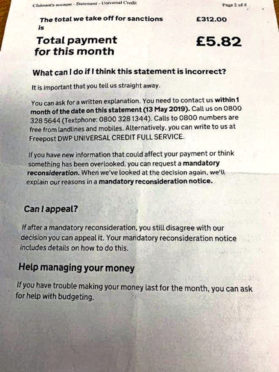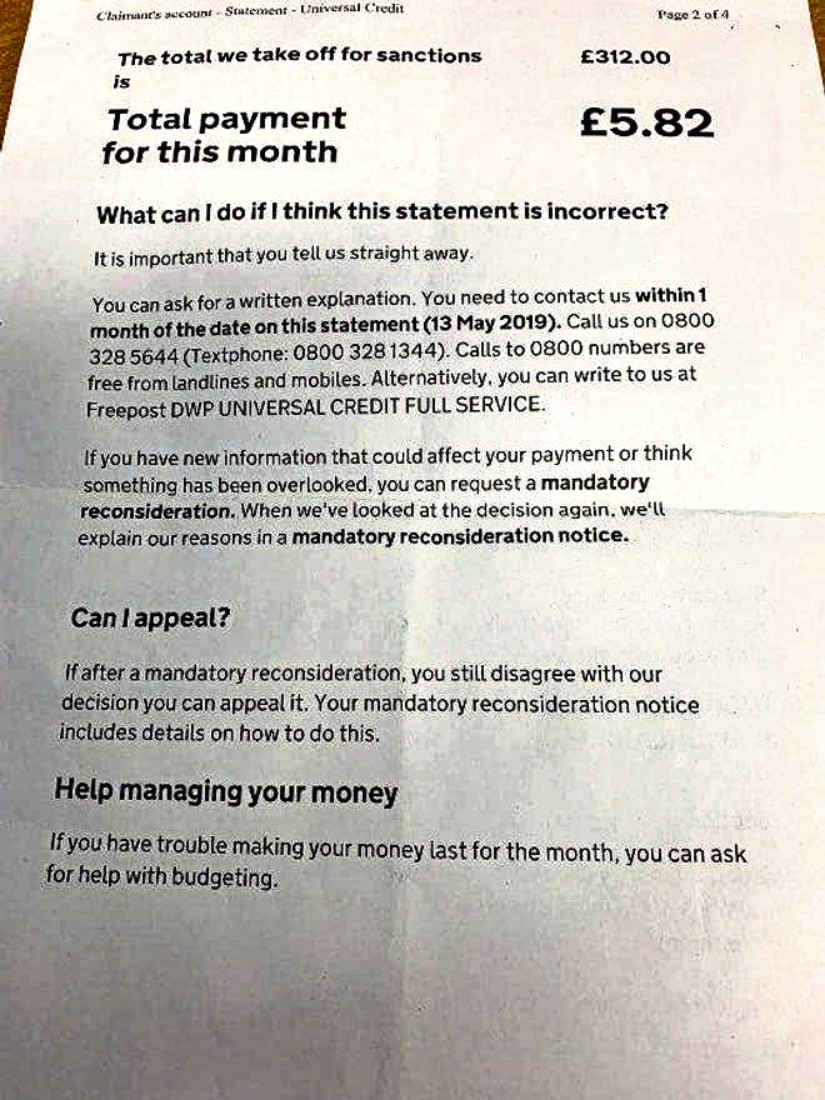Imagine this: It is that point in the month when your income is due to drop into your bank account.
Expecting hundreds to be credited, you boldly approach the ATM and discover you only have £5.82 for the whole month.
What would you do? This was the case for one Universal Credit claimant with mental ill health who was sanctioned and had more than £300 seized, leaving him with less than £6 to survive.
We once sanctioned foreign dictators but now we reserve that pleasure for people experiencing poverty.
I am becoming deeply troubled. In April, my former colleagues at The Trussell Trust announced the distribution of a record 1.6 million emergency food supplies to men, women and children across the UK.
In Scotland, annual provision reached 210,605 which, by comparison to other parts of the country, was a disproportionately high increase of 23%.
Just let that sink in – the amount of food provided by foodbanks in Scotland over the last year could have fed the entire city of Aberdeen for three days.
I do not like to use cataclysmic terms such as crisis to describe poverty but as Campbell Robb, the chief executive of the Joseph Rowntree Foundation, correctly said in relation to these figures: “We are beyond the language of warning signs and wake-up calls.”
And The Trussell Trust is only one thread woven into a wider tapestry which includes the Independent Food Aid Network, Menu for Change, Food Power and many other strands stitched into the fabric of communities across the United Kingdom.
Foodbanks are the humble whistle-blowers to the crisis that is emerging in our midst but they are reaching breaking point.
They use social media to highlight shortages in supply and it is regularly filled with desperate pleas for items.
Many foodbanks tell me they receive less donated foods at supermarket collections now due to consumer uncertainty.
One customer apparently told foodbank volunteers at a supermarket that he is currently stockpiling food he would normally donate to the foodbank.
At a recent meeting, one voluntary organisation said it now has its own food cupboard for clients because its local foodbank has had to strictly apply limitations on how many times it gives food to individuals in a prolonged crisis due to a lack of available resources.
And, most tragically, I was sad to hear of a foodbank manager who recently collapsed on her shift and was taken to hospital in an ambulance due to sheer exhaustion at the volume of people coming through the door on a busy day.
Last week, bold action was announced to shift the curve on child poverty.
This week, Scottish parliamentarians go on a well-earned summer break.
When they return, it is crucial we, as a nation, turn our collective attention to the emerging crisis of food insecurity and ask how we might tilt the balance on this public health emergency.

